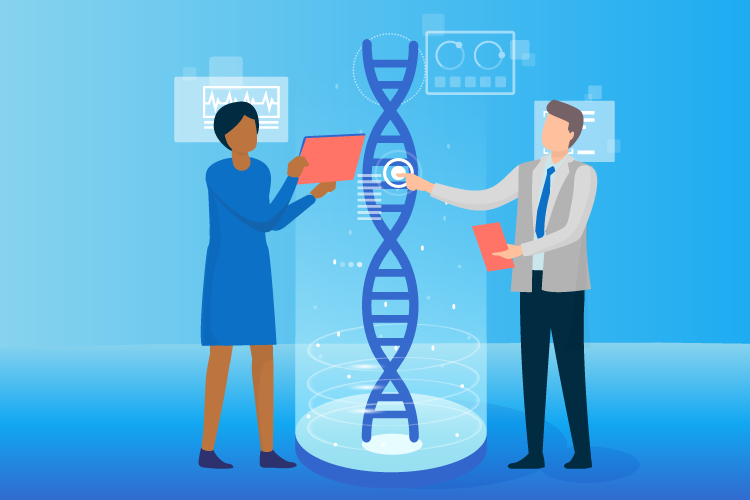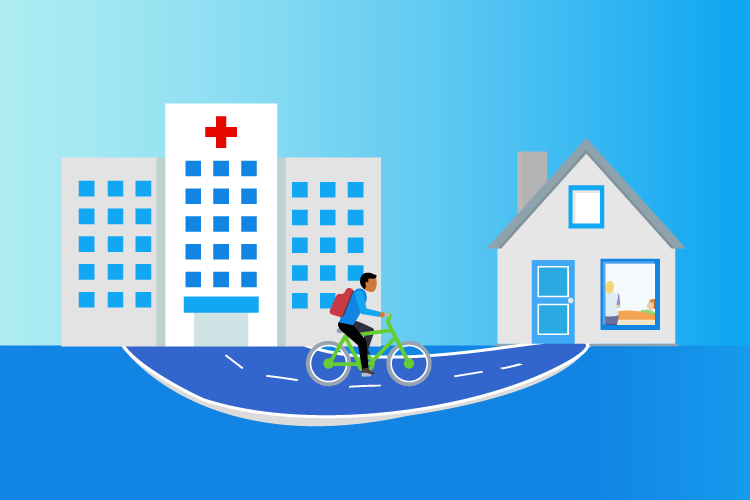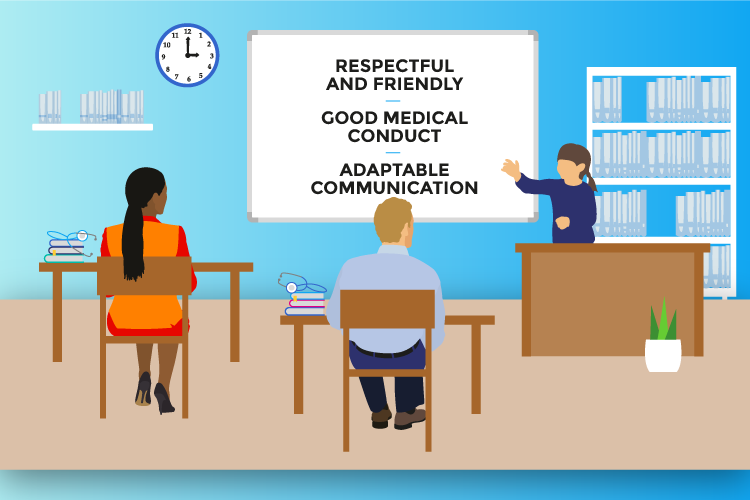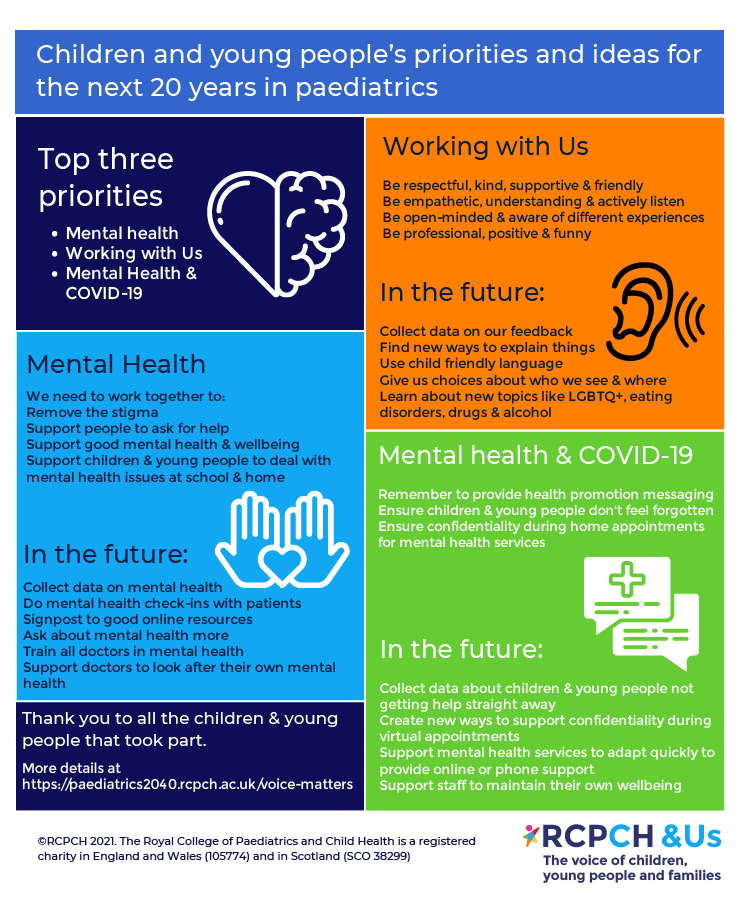Summary of our work
What will paediatrics look like in 2040? Read a summary of our Paediatrics 2040 project conclusions.
What are the key issues likely to be in paediatric care in 2040?
Without implementation of integrated care, we expect to see a significant rise in the number of children and young people needing paediatric care via both emergency department and outpatient routes.
For adolescents and young adults, we forecast significant future increases in poor mental health, substance use and the consequences of prematurity. This was set to happen even before the impact of COVID-19, based on previous trends.
Without targeted investment in existing roles and funded expansion of new workforces, such as Advanced Clinical Practitioners, paediatric workforce pressures are set to worsen, with projected decreases in the SAS doctor role and community paediatric workforce, and more doctors working less than full time.
We expect that there will continue to be increasing challenges to child health felt from the impact of worsening poverty and climate change.
What is the likely role of paediatricians in 2040?
Paediatricians will remain a central part of the integrated child health workforce in 2040.
Their roles will look different – increases in technology to support care will mean that paediatricians will be supporting children and young people in new ways. Those conducting face to face work may not be seeing patients in the traditional settings expected today.
Paediatricians will likely need to spend a greater proportion of their time looking after children with more complex healthcare needs and working across physical and mental health.
Paediatricians will spend more time working at a global health level, supporting colleagues with the impacts of emerging pandemics and population health issues.
What will paediatricians need in 2040?
What paediatricians are asking for doesn’t look radically different to today – flexibility, evolving training, opportunities to work together – and it is hoped that by 2040, these asks will have been met so we continue to attract people to the specialty.
We will need to be working in more integrated ways across the health system in order to fulfil their roles, otherwise our systems risk being overwhelmed.
Paediatricians will also need their colleagues in other healthcare roles to be appropriately trained and supported to see the healthier child, giving them time to support children with complex needs.
Paediatricians will need a strong collective voice in order to be heard in the context of new and increasing health issues on the agenda.
Over 300 members joined us in our thought experiment about the future. Here is a summary of their vision; more information is available within the individual workstreams.
In 2040, what do you think will be the biggest health issue affecting children and young people?

We asked 298 members “In 2040, what do you think will be the biggest health issue affecting children and young people?” The top three responses (from qualitative data) were mental health (43.71%), obesity (31.14%) and climate change (10.78%).
Read more in our data and evidence summary
In 2040, what do you think will be the biggest innovation that has changed practice in your field?

We asked 290 members “In 2040, what do you think will be the biggest innovation that has changed practice in your field?”. The top themes were new models of care, technology, and personalised medicine.
Read more in our impact of innovation summary
In 2040, what is the top thing you want to be different about the delivery of paediatric care?

We asked 295 members: “In 2040, what is the top thing you want to be different about the delivery of paediatric care?” The top themes were moving care out of hospitals, staffing, and using technology to strengthen IT systems.
Read more in our models of care summary
In 2040, what is the top thing you want to be different about the working lives of paediatricians?

We asked 294 members the question, “In 2040, what is the top thing you want to be different about the working lives of paediatricians?” The top things they said were working hours, flexibility, better treatment and protection of paediatricians, and more staff.
To set things on course for a better future and to reach our vision, we particularly want to highlight three areas for focus, or ‘enablers’, in paediatrics and child health.

Integration Data systems | Care models | One team

Innovation Education and training | Delivering care | Evaluating and improving

Inclusion Co-production | Equality and diversity | Looking after each other
What children and young people told us
Over 3,000, views and hopes for supporting the best possible paediatric services and staff of the future were shared by children and young people across the lifespan of our project.
We asked: “what knowledge, skills and attitudes do doctors need when working with children and young people” with the results showing the top three in the UK:
- Respectful, kind, supportive and friendly
- Good medical conduct
- Communication

From this, our youth authors decided the three most important things for the Paediatrics 2040 project to think about how to make services the absolute best they can be for children and young people:
- Mental health awareness and understanding
- About how staff work with us, including things like the words they use, the way they talk to us and how things are explained or understood
- The impact of COVID-19 on our mental health
Their infographic explains more.

